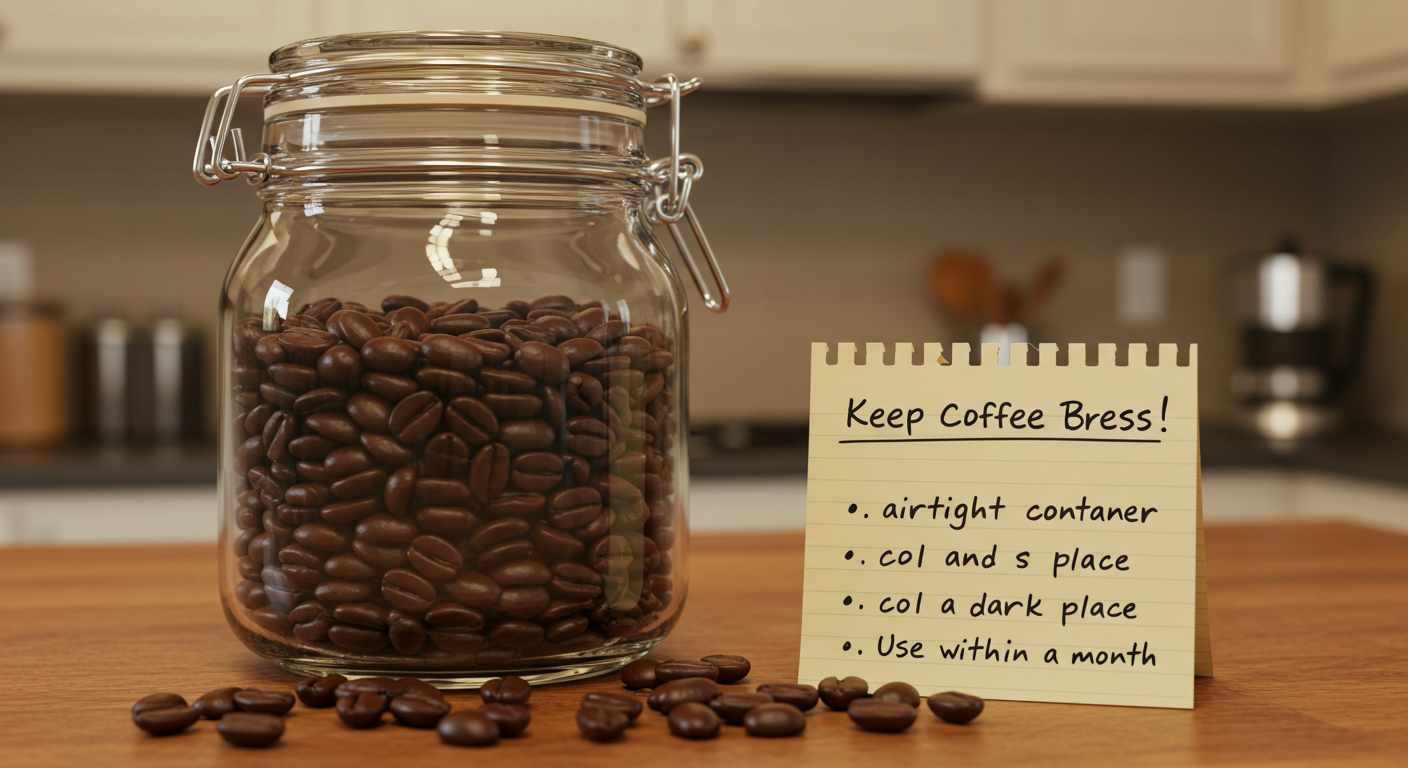If you’ve ever bought a bag of amazing coffee only to find it tastes dull after a couple of weeks, chances are it wasn’t stored properly. Coffee is sensitive — to light, air, moisture, and temperature. But with the right storage methods, you can keep your beans fresh and flavorful for much longer.
Here’s everything you need to know about storing coffee beans to preserve their aroma, taste, and quality.
Why Proper Coffee Storage Matters
Freshly roasted coffee contains hundreds of aromatic compounds that give it flavor. Once exposed to oxygen (a process called oxidation), these compounds begin to break down. Within just a few days or weeks, coffee can go from vibrant and complex to flat and stale.
That’s why how you store your beans plays a crucial role in the quality of your cup.
The Enemies of Fresh Coffee
To store your coffee properly, you need to protect it from the following:
- Oxygen – speeds up oxidation and staling
- Light – breaks down flavor compounds, especially UV light
- Moisture – causes spoilage and mold
- Heat – accelerates chemical breakdown
Let’s look at how to block each one.
1. Store Coffee in an Airtight Container
The Fix: Use a sealed, airtight container to limit oxygen exposure.
Best options:
- Vacuum-sealed containers
- Coffee storage canisters with CO₂ valves
- Mason jars with silicone sealing lids
Avoid:
- Paper bags with fold-over tops
- Unsealed containers or bags with zip ties
Tip: Open the container only when needed. Every time you let air in, freshness escapes.
2. Keep Coffee Away From Light
The Fix: Choose opaque or UV-blocking containers and store them in a dark place.
Direct light, especially sunlight, can degrade oils in the coffee and dull its flavor. Even transparent containers placed near windows can be a problem.
Best practice:
- Use dark, solid containers
- Store in a cupboard or pantry away from appliances or windows
3. Avoid Moisture and Humidity
The Fix: Store coffee in a cool, dry place.
Moisture is coffee’s enemy — it can cause your beans to mold or lose their natural oils. Never store coffee near sinks, stoves, or dishwashers.
Never do this:
- Do not store coffee in the fridge or freezer unless sealed in vacuum packaging.
- Beans absorb odors and moisture easily — which ruins the flavor.
4. Keep It Cool, Not Cold
The Fix: Room temperature is ideal.
Contrary to popular belief, freezing or refrigerating your daily-use beans does more harm than good. Condensation forms when beans move in and out of the freezer, damaging them.
Only freeze coffee if:
- You have a large amount to store for a long time
- It’s vacuum sealed
- You plan to thaw and use all at once, not repeatedly open and reseal
5. Buy the Right Amount
The Fix: Buy only what you’ll drink in 1–2 weeks.
Buying in bulk is tempting, but unless you store it flawlessly, quality will suffer. Small, frequent purchases of fresh beans are always better than one giant bag that lasts months.
Pro tip: Check the roast date (not just the expiration date) and aim to use beans within 2–4 weeks of roasting.
6. Don’t Grind Until You Brew
Ground coffee loses freshness much faster than whole beans. If you’re storing pre-ground coffee, even airtight containers won’t fully protect it.
Solution:
- Always grind your beans just before brewing.
- If you must store ground coffee, follow the same airtight, light-proof, cool-storage rules.
7. Use Coffee-Specific Containers
There are containers designed specifically for coffee lovers, featuring CO₂ valves that let gas escape without letting oxygen in. These are great for preserving freshness after roasting, as coffee releases gas for several days.
Recommended materials:
- Stainless steel
- Opaque ceramic
- Dark glass with airtight lids
Avoid:
- Clear plastic
- Bags with flimsy seals
Extra Storage Hacks
- Label containers with roast dates so you don’t forget.
- Store backup beans in vacuum-sealed bags inside a cool pantry.
- Use a dedicated coffee shelf or drawer away from kitchen heat zones.
Fresh Beans = Better Coffee
No matter how high-quality your beans are, they won’t live up to their potential if they’re stored incorrectly. Taking just a few minutes to improve your storage setup can make a huge difference in your coffee’s flavor and aroma.
Treat your beans like you would fresh produce — handle with care, avoid harsh conditions, and don’t buy more than you can enjoy while it’s at its peak.


